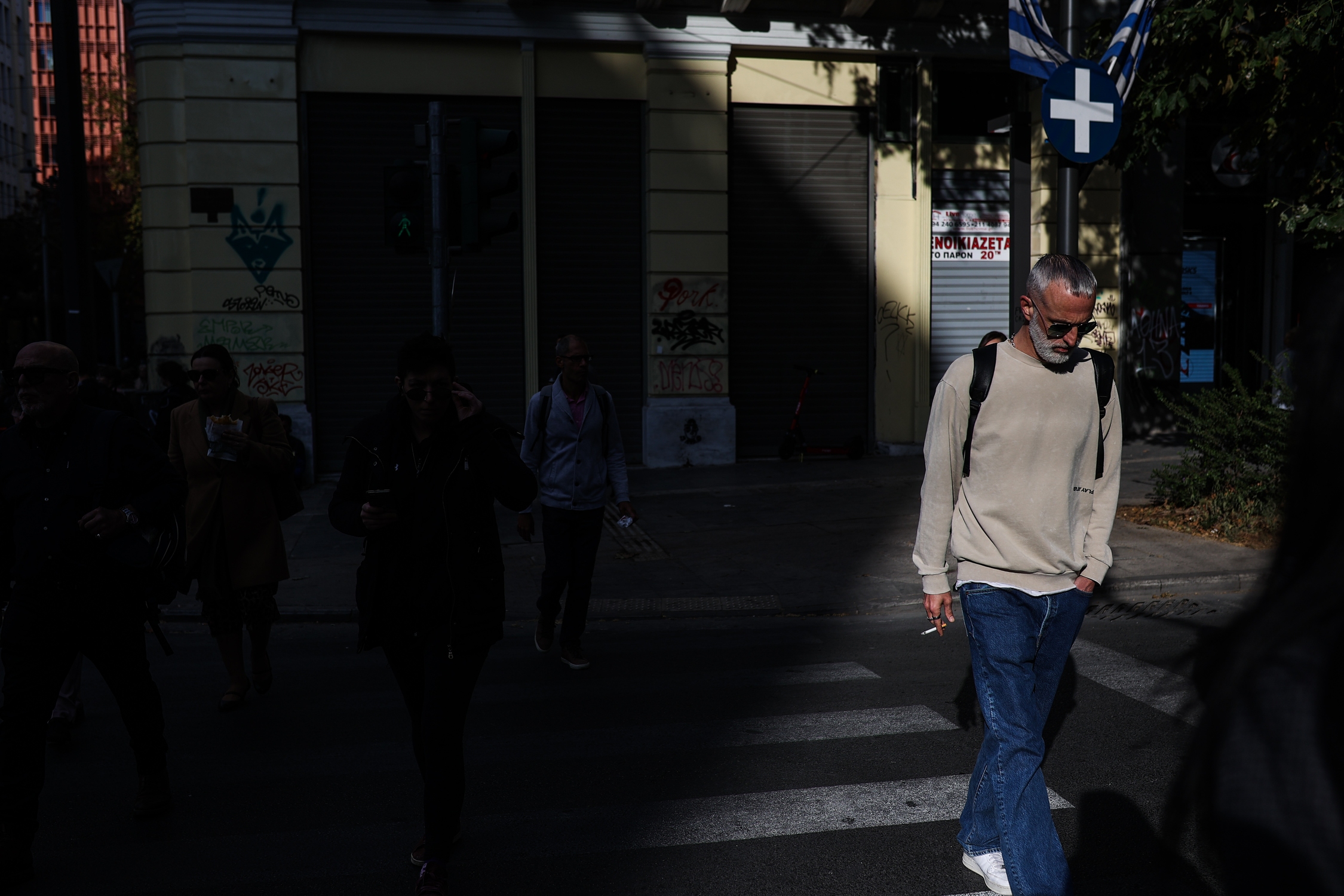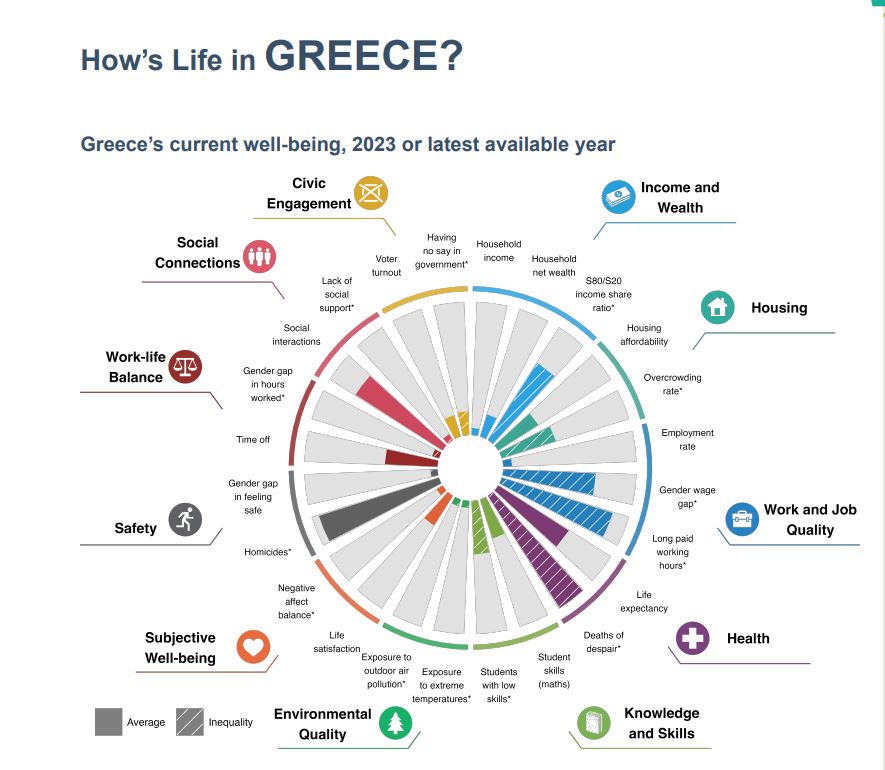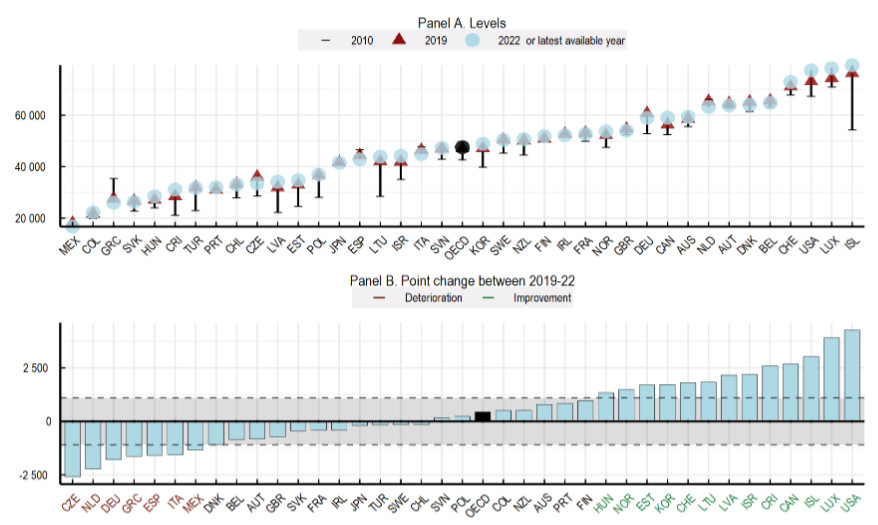
The OECD’s “How’s Life?” report uses 80 wellbeing indicators to assess living conditions across member countries. Greece’s profile in this year’s report underscores its position in global wellbeing, comparing data over time and against the other 34 participating nations.

Wage stagnation and financial hardship
Greece ranks third worst for wages among OECD countries, following Mexico and Colombia and closely followed by Slovakia and Hungary. Since 2010, real wages in Greece have seen a significant decline, with the 2010–2019 period recording the steepest fall. From 2019 to 2022, Greece’s wages saw a further downturn, placing the country in the fourth-lowest position, after the Czech Republic, the Netherlands, and Germany.
In terms of financial hardship, Greece has one of the highest proportions of citizens struggling to make ends meet, following Mexico, Slovakia, and Turkey. Over 65% of Greeks report financial challenges, a higher rate than in 2010, though slightly improved compared to 2019. Reflecting these economic strains, Greece remains fourth from the bottom in life satisfaction within the OECD, though it did see one of the largest life satisfaction improvements from 2019 to 2023.
Inequality, overcrowding, and low civic engagement
The OECD’s “wheel of wellbeing” presents Greece’s strengths and weaknesses across 11 components: income and wealth, housing, job quality, health, education, environmental quality, subjective wellbeing, safety, work-life balance, social connections, and civic engagement.
Greece ranks below the OECD average in several of these sub-indicators, including income inequality, overcrowded housing, gender wage gap, long working hours, exposure to extreme temperatures, and election participation. The OECD’s analysis also notes that Greece continues to struggle with income inequality, where social and economic divides remain pronounced.
Environmental improvements but economic setbacks
On the positive side, Greece has made strides in reducing carbon emissions, with per capita emissions falling from 10,700 tons to 7,300 tons. The country has also seen substantial growth in renewable energy use, with renewables now accounting for 16.6% of the energy mix, compared to 8.6% in 2010. However, the report highlights an increase in endangered animal species, showing mixed results in natural capital.
Economically, Greece faces challenges: public debt has risen from 94% to 134% of GDP, and fixed capital investments have dropped significantly from $97,000 per capita (in purchasing power parity terms) to $78,000. The only positive change in financial capital is a reduction in household debt, now down to 86% of net disposable income, from over 100% in 2010.
Struggling with gender equality and political representation
The report also points to Greece’s struggle with gender equality in politics. Only 21% of legislators and elected officials are women, marking it as one of the lowest performers among OECD countries. In broader indicators of social capital and political engagement, Greece continues to rank near the bottom, underlining both economic and social challenges that remain significant.

______________________________________________
Are you seeking news from Greece presented from a progressive, non-mainstream perspective? Subscribe monthly or annually to support TPP International in delivering independent reporting in English. Don’t let Greek progressive voices fade.
Make sure to reference “TPP International” and your order number as the reason for payment.